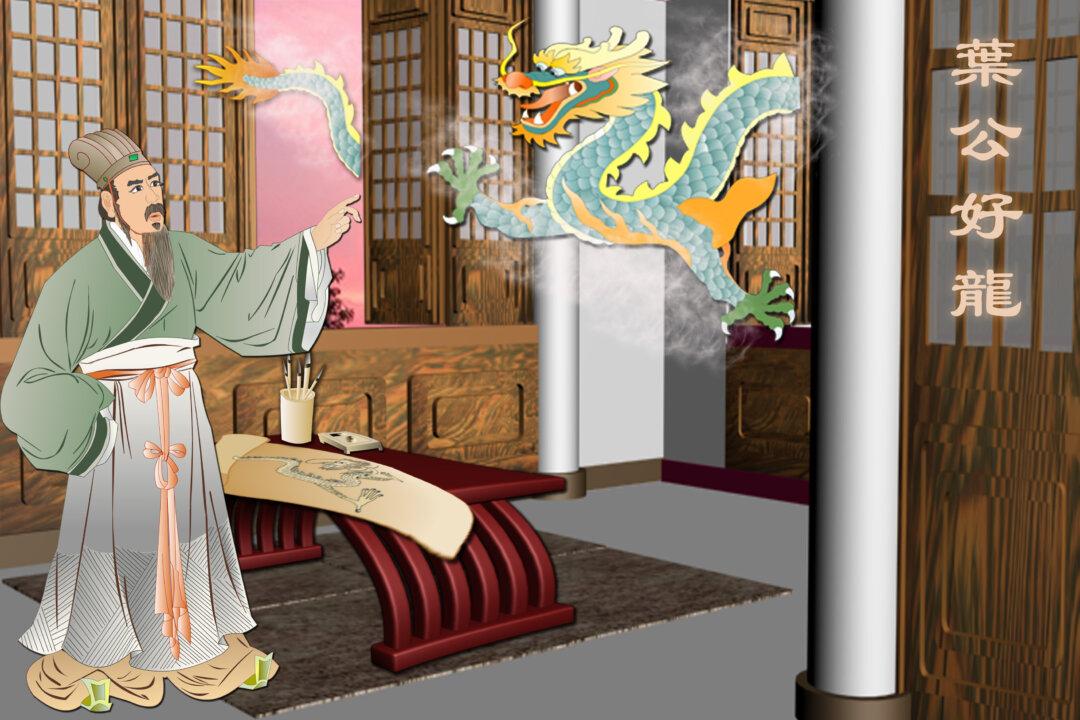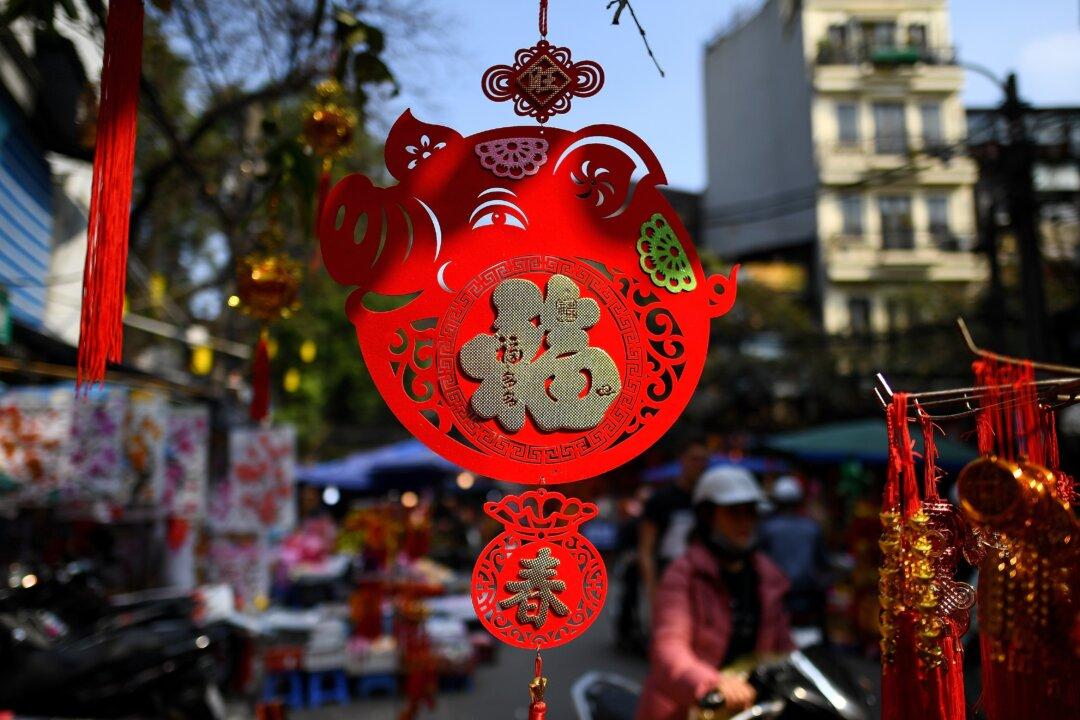In the Spring and Autumn Period (770–476 B.C.), in the state of Chu, there lived a man named Chu Zhuliang who addressed himself as the “Duke of Ye.”
The Duke of Ye was known for his love of dragons. He was so fond of dragons that he had dragons painted or carved almost everywhere in his home— on the walls, doors, windows, beams, and pillars.
His clothes were embroidered with dragons, too, and he often told people that dragons were what he liked best.
When a heavenly dragon heard of the duke’s passion, he was deeply moved. He decided to visit the duke to thank him.
However, when the dragon appeared before the Duke of Ye, the man was scared out of his wits at the sight of the creature and cried for help.
The dragon thought this was very strange and said, “I heard you liked dragons best. How can you be so frightened at the sight of me?”
Trembling, the Duke of Ye replied, “I only like dragon images; seeing you is not the same!” Then the duke ran out of the house as fast as he could.
From then on, people knew that the Duke of Ye only loved pictures or carvings of dragons, not real ones.
The above story was included in “New Prefaces” by Liu Xiang, a writer from the Western Han Dynasty (206 B.C.–A.D. 23).
This story inspired the idiom 葉公好龍 (yè gōng hào lóng), literally “Duke Ye is fond of dragons,” which is often translated as “profess to love what one actually fears.”
Today, the idiom is used to ridicule pretentious or hypocritical people.
Note:
Liu Xiang (77–6 B.C.) was a scholar and author during the Western Han period. Among his many scholarly specialties were history, literary bibliography, and astronomy. He is particularly well-known for his bibliographic work in cataloguing and editing the extensive imperial library.




